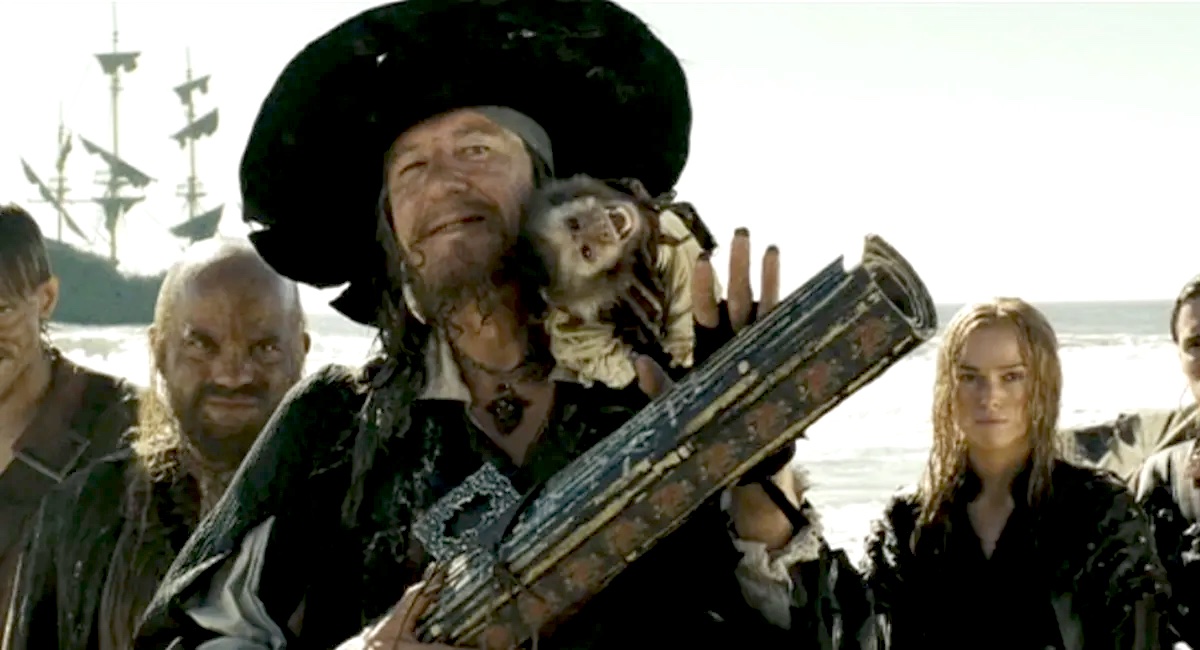Rebooting ‘Pirates of the Caribbean’ Gives Disney a Chance To Fix the Franchise’s Misogyny

The Pirates of the Caribbean film franchise is a masterstroke of action-comedy storytelling, but it’s rife with big problems like misogyny. Now that a reboot has been announced, it’s time for Disney to reconcile with the sexism that has plagued the movies for years.
As reported by The Hollywood Reporter, the Pirates of the Caribbean film series is getting a reboot. Jerry Bruckheimer, the producer of the movies, said that the next film will be a revamp of sorts. “We developed two of them—the one with Margot Robbie and one with a younger cast,” he told THR. “The Margot Robbie one needs a little more work. The younger cast one is close. Hopefully we’ll get both of them.”
It’s very likely that this reboot will feature a female protagonist. However, it’s also not known yet whether Johnny Depp will reprise his role as Captain Jack Sparrow. We don’t have concrete details on the upcoming project, but one thing’s for certain: This is the time to reconcile with the series’ treatment of women.
For most of the Pirates of the Caribbean franchise, women have either played second fiddle, damsel, or the butt of a joke. Elizabeth Turner, in the first movie, acts as both helpless damsel who needs constant rescuing, as well as the object of the male gaze.
In an early scene, Elizabeth passes out from her corset, which is an old, tired myth we’ve debunked before in a separate article, and is only revived after Captain Jack Sparrow rips her corset to relieve pressure. Many of her other scenes don’t fare well either, as she’s pretty much passed back and forth between men: Jack Sparrow, Will Turner, Captain Barbossa, and the British Navy Fleet.
Spoilers for Pirates of the Caribbean: At World’s End
Her role does improve substantially in the third film, At World’s End, but it comes after two movies of mostly passive participation. Plus, the film isn’t entirely free from the male gaze. When Elizabeth, Will, Barbossa, and crew travel to Singapore to meet pirate lord Sao Feng, there’s a shot where pirates hidden beneath the metal grate flooring look up at Elizabeth’s skirt as she walks past. It’s played up as a joke in a really slimy way.
Of course, later on in the film, Feng appoints Elizabeth as pirate lord right before dying, giving her a newfound role of substantial power within the story. The third film mostly handles this okay, but it is very odd that Elizabeth and Calypso are basically the only women with narrative autonomy in the film and for the other two movies.
And these problems don’t improve in the movies following At World’s End, as they too are rife with plenty of sexist scenes and objectification.
I love Pirates of the Caribbean as much as anyone else, but it’s time for Disney to introduce more strong female characters in the series. This reboot is a perfect opportunity for some feminism.
(featured image: Disney)
Have a tip we should know? [email protected]
